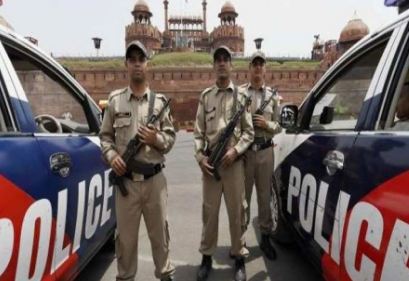In order to strengthen the foundation of community policing as well as participation at all levels, the Delhi Police have augmented its efforts by involving students, in the well-intentioned initiative. The idea, came into public domain after the tweet of Special Commissioner, Sanjay Singh, who till recently was looking after media relations and perception management in the Police Headquarters. The ambitious programme, where those enrolled would be referred as Student Police Cadets, entails efforts to enhance the consciousness regarding basic values, that contribute to the making of good citizens as well as educating youngsters of how the police system works, to counter social evils and crimes of various nature. The objective is to acquaint students with the functioning of the police and how participation by members of the civil society could help to take this movement forward. Sanjay Singh is an experienced officer who has served in various capacities in the force and apparently wants to give to the organization, what he acquired from it, over a period of time. He is now looking after the Licensing department but his successor, RP Upadhyaya, is certainly going to continue with this programme. So far, the Delhi Police have identified 205 schools. To begin with 20,470 students have enrolled as Student Police Cadets. The motto is simple, “We Learn to Serve’’ and it is designed to make the students, and through them the elders, comprehend the salient features of the police system, by involving them into indoor and outdoor activities. The most effective method employed by police forces throughout the world is to involve the communities they serve, in order to get better results. For this to happen, it is important to earn the confidence of the general people so that they can assist the police both in preventing and working out crimes. So far as students are concerned, the first step for them is to practice discipline and acquire the ability to distinguish between right and wrong. The evils of drugs and alcohol as also their impact on households and society, are amongst the issues that would figure prominently in the inter-actions with police officers. On its part, the Delhi Police have identified the resource persons who would be meeting and engaging with the students. Knowledge about traffic norms is an essential part of the curriculum. In fact, traffic lessons go a long way in influencing the minds of young people as they are the ones who subsequently grow up and contribute to either instilling semblance to the movement of vehicles on roads, or the chaos which we often witness on a daily basis. A long time ago, when I was a student of Delhi Public School, Mathura Road, Traffic police personnel would regularly visit our institution to help us understand certain measures that should be observed to promote road safety. These lessons are still deeply etched in my mind. For instance, it was drilled in our consciousness, that never cross the road from the front of a vehicle that was parked on the side. Instead, walk a little distance ahead before crossing, so that the incoming traffic is more visible and thus a mishap can be prevented. Similarly, we were told to walk on the footpath facing the oncoming traffic, and not in the same direction, since evasive action could be taken in case a vehicle strayed from its path towards the pavement. Similarly, the present exercise started by the Delhi Police, particularly when the public perception regarding its effectiveness has been doubtful, would serve besides helping in the PR, in also educating young minds. The rash and negligent behaviour on the thoroughfares, incidents of Road rage can all be contained if there is proper awareness. The ramifications of drug abuse and the overall non-adherence to the value systems is all making life difficult in our metropolitan cities in particular. The Delhi Police have been amongst the best police forces in the country, though in the last few years, it has not lived up to the wide expectations, citizens have from it. In 1984, after the assassination of Indira Gandhi by her two security guards who belonged to the Delhi Police, and the anti-Sikh genocide that followed, the force was widely criticized and rightly so. But since then, it has only moved in the right direction most of the times. When I started covering the Crime beat as a young reporter, the Delhi police credo that greeted visitors to its Headquarters was “Every Policeman is a Citizen in Uniform and every Citizen is a policeman without Uniform’’. The essence was the need for a very strong Police-Community relationship, which continuously needs upgradation. A few years later, the Delhi Police slogan displayed prominently on all its vehicles was, “With You, For You, Always’’. Sanjay Singh’s tweet, “We Learn to Serve’’ also reflects the evolution of the police force and its renewed efforts to repair the community-police relations. This is an effort which should be both applauded and welcomed by greater participation. The student cadet exercise, if properly implemented and monitored, can become the instrument for helping the Delhi Police to regain its image and effectiveness in public perception.

















